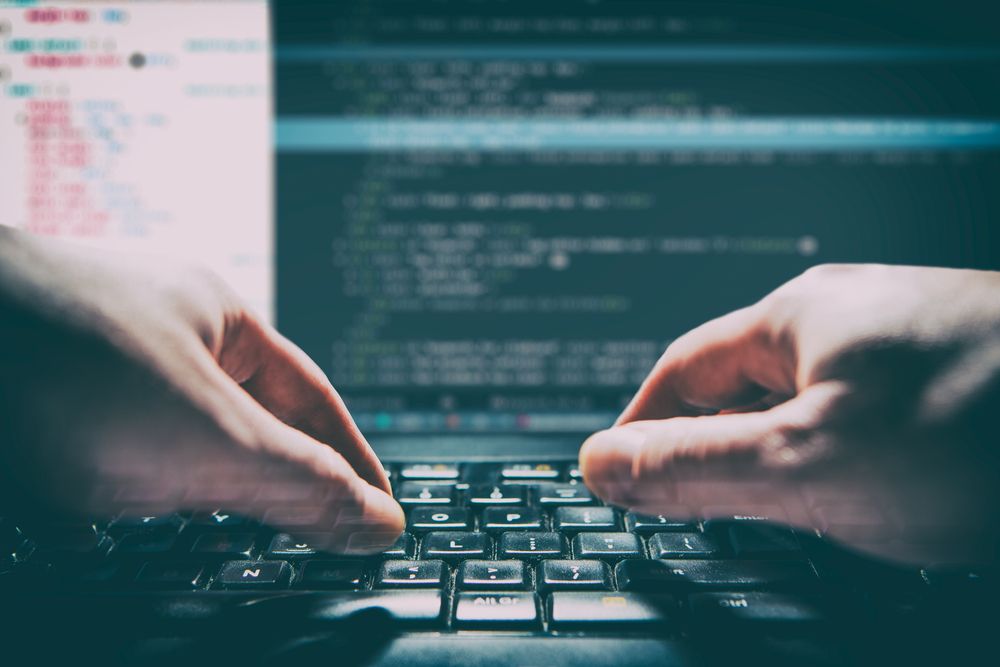Hackathons: An opportunity for Mena's tech innovators

Finding solutions for the disruption and devastation of the “new normal” caused by the Coronavirus pandemic has ignited a wave of hackathons around the world. Hackathons are essentially design-focused events, bringing together people with different skillsets like software developers and project managers to collaborate and develop what is usually a software solution for a particular problem.
Over the past few months, the tech community all over the world has come together to innovate and alleviate the daily struggles faced by governments and the people.
For entrepreneurs and innovators based in the Middle East and North Africa (Mena), these hackathons have become a platform for them to showcase their technological capabilities to the rest of the world.
Egypt-based DXwand is one such startup that captured the tech community’s attention. Its artificial intelligence (AI) chatbot “Ask Nameesa” was selected as one of the top tech projects worldwide by 350 judges in the #BuildforCOVID hackathon. The chatbot helps governments and health authorities to remotely interact with suspected Covid-19 cases through Facebook and Whatsapp through its AI engine that can communicate in 70 languages, including conversational dialects. This direct line of communication means suspected cases do not need to leave their house to report their symptoms.
The startup was among 1561 projects submitted from 175 countries.
“Being part of this hackathon has allowed us to gain further insights from experts at global hi-tech organisations, like Microsoft, Facebook and Amazon, which has helped us further develop our product,” said Ahmed Mahmoud, founder and chief executive offer (CEO) at DXwand.
As scientists race to develop a vaccine, these hackathons have proven beneficial in dealing with the peripheral issues that have arisen as a result of the pandemic and are helping to inspire a new wave of innovation.
“Now is the time to adopt moonshot ideas that will help tackle the crisis,” says Dima Saleh, one of the organisers of the Jordan Pandemic Hackathon, whose goal is to help emerging startups find innovative solutions for problems facing the Jordanian community before and after the crisis.
“We were always on the lookout for ideas that would boost the public awareness about Covid-19 and provide the tech industry with the necessary backup technical material such as applications in case of any potential outbreak,” she adds.
Hackathons are also proving to be an effective convener of the region’s tech ecosystems.
The Jordan Pandemic Hackathon, whose initial round took place 8-11 April, was held as part of the regional Arab Pandemic Hackathon which brought together the IOT Jordan Community, Egypt’s ASRT and Tunisia's ATAST, who each organised a local chapter of the hackathon in their respective countries.
Among the ideas that emerged from the hackathon were Healthtech - which follows a crowd-sourced data approach to enable epidemiological teams track infection locations and Blue Cash, a device to sterilise cash.
Meanwhile Dubai-based Global Grad Show launched an open call related to Covid-19 for its hackathon, attracting more than 400 entries from 110 universities across 40 countries including the UK and US as well as universities in emerging markets such as Peru, Kenya, Uganda, Iraq, Egypt and Thailand.
“We are not very concerned about finding something that does not apply to other continents or other countries because we see overwhelming similarity between the issues that people face during the current situation. The open call was set up to identify not only solutions but problems as well,” says Tadeu Baldani, director at Global Grad Show. “It is not about who is winning and who is not. It is more about nurturing the good ideas that can be developed into go-to-market solutions.”
The participants were called to find solutions for challenges impacting hygiene and personal protection, mental health, remote and home care, children’s health and development, medical supplies, business opportunities, data-driven strategies and life post-lockdown.
“We are looking for solutions that are quicker and easier to implement. It is also important for the winning ideas to have a large impact or scale. By impact, I mean that we prioritise the ideas that address a bigger part of the population,” he explains.
Submissions included antiviral gloves from the American University of Sharjah and Echoo, a pro-socialising headset from the National University of Singapore.
The pandemic has also presented an opportunity for the corporate sector to engage with startups through hackathons. In Saudi Arabia, in a hackathon sponsored by Domino’s Pizza, a new platform that uses virtual reality and augmented reality for video conferences emerged as well as an automated respiratory screening project for healthcare practitioners to help them avoid getting infected from a potential carrier of Covid-19.
Winners of these hackathons are afforded a level of recognition that would be difficult to achieve without a significant marketing budget and access to mentorship from global tech companies.
“The winning teams get the opportunity to be awarded grants offered by several donors, including the EU Commission, Y Combinator, and ministries of health, education, telecommunication and others. This in addition to mentorship support programmes from well-known accelerators,” says Hussein Mohieldin, co-founder and CEO of Egypt-based Robusta which has organised a series of hackathons under its Fight Not Flight campaign to solve the urgent problems facing businesses, health communities and the wider society.
Some of the winning ideas from Robusta’s hackathons include KOY, a platform that develops multi-use personal protective equipment and Glaveko, a B2B marketplace for medical equipment suppliers to ease the procurement process for hospitals.


